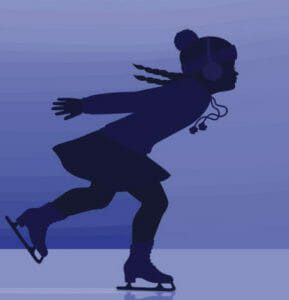Confront Casual Hate
Generally, we think of hate as something said in anger. How do you confront it when it is said as a simple observation?

Sara Newman, a Jewish parent of two children, were actively involved at a skating rink where one child played hockey and the other figure skated. She was there, with the kids, almost every weekday. She had lots of casual friends there, since she saw people there all the time. Last fall, she and her daughter experienced this casual antisemitism:
… the hockey administrator rushed in, breathless. “Getting a new passport in my town is the worst,” she said, by way of explanation. “I went to the post office and one of those Jews with twenty children was in front of me.”
… But before I could process her first statement, she moved on to complaining about the Jews in a nearby town who wanted to hang wires from existing electrical poles. At first I wondered if a synagogue was undergoing construction, but then I realized she was speaking about an eruv, a boundary, usually wires, that allow observant Jews to carry things in public on Shabbat.
Most people react to this kind of speech without confronting it. What makes it hard to confront? Fear of being accused of making a big deal over “nothing”, of “having a thin skin” of “being a pushy Jew” (or “the angry Black woman” or the “Feminist who can’t take a joke”).
What to do about casual antisemitism?
Name the behavior. Do not confront, just describe it. Actively assume good intentions. Point out the tone. Point out the association of “Jew” with annoying.
By pointing it out — but not accusing — the person who said it has room to save face or even apologize.
Examples:
“Hey, Jane, do you know I am Jewish? You are talking about Jews in a pretty negative way. I hope you don’t talk about me like that.”
“Hey Jane, you just complained about Jews twice in a couple of sentences. You know I am Jewish, right? Am I welcome here?”
What to do about overt antisemitism?
This moment of casual antisemitism brought Sara Newman‘s awareness of other incidents that had occurred at the rink. Prior to this moment, these things had happened:
- Her daughter was called a “kike” and struck by another child.
- Some of the parents “questioned the priorities” of the family when the son refused to play hockey on a game that was held on Rosh Hashanah (the Jewish New Year and one of the two most important worship days of the year).
Given her awareness of the antisemitism around her and her children, she chose to publish this essay. Before doing so, she learned that her children already understood that they needed to speak out if they were going to be who they are (Jews) at this skating rink.
[Her son said] “Being a Jew is the same as being brave. Forever people have been trying to make it so scary that people are afraid to say they are Jewish. And it never works” He doesn’t want to leave this rink or this team but, at 8, he already knows his work is cut out for him.
As it turned out, I didn’t need to teach my kids. They were able to teach me. My kids will continue to skate and play hockey, and when we follow our usual custom to skip playing on holidays, we will be vocal about why we’re missing a competition or game.